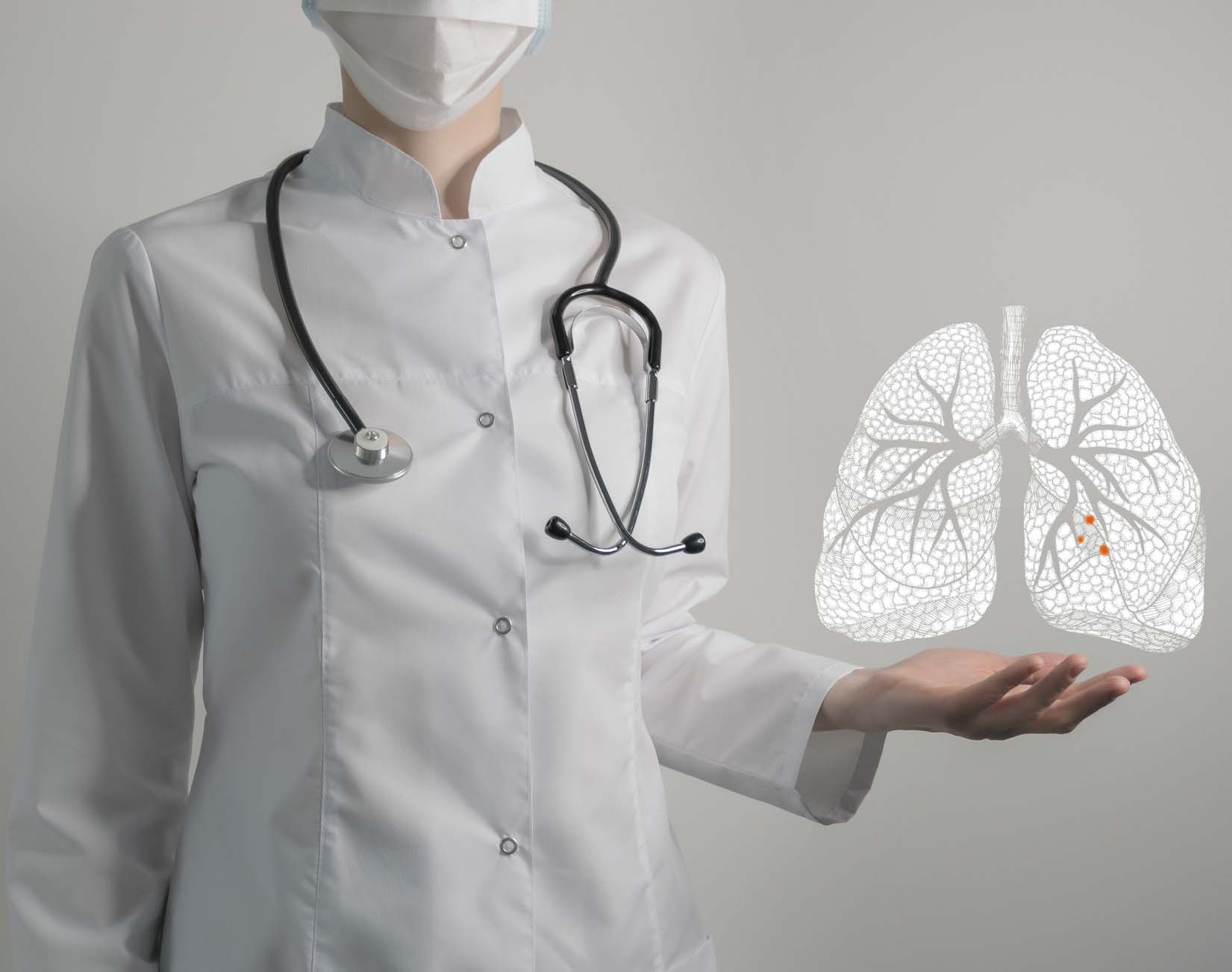Beyond tobacco: Lung cancer in nonsmokers
Here's what can predispose you to the deadliest malignancy, even if you've never taken a puff.
- Reviewed by Toni Golen, MD, Editor in Chief, Harvard Women's Health Watch; Editorial Advisory Board Member, Harvard Health Publishing; Contributor

Allison was like many patients who have lung cancer but never smoked: livid. Diagnosed in her mid-50s, she associated the malignancy solely with cigarettes. Though she's doing well eight years later thanks to a widening array of treatments, Allison never imagined she might one day be counted among lung cancer's ranks.
"Many patients like her feel angry that they got lung cancer, I think because of the stigma associated with the disease," says Dr. Andrea McKee, a radiation oncologist at Harvard- affiliated Lahey Hospital and Medical Center.
That stigma persists because lung cancer is so intricately tied with smoking. People who smoke are 15 to 30 times more likely to develop or die from the disease, which kills more Americans than any other kind of cancer. But while cigarette smoking remains the biggest cause, between 15% and 25% of lung cancer cases across the globe occur in people who have never smoked, according to a 2021 study in the Chinese Journal of Cancer Research.
The good news is that lung cancer rates have steadily declined as more Americans have quit smoking. For women, however, the picture isn't as rosy. The rate of lung cancer deaths is dropping more quickly in men than women, and women ages 35 through 54 are also getting lung cancer at higher rates than men, according to an October 2023 report issued by the American Cancer Society.
"Lung cancer isn't a man's disease anymore," says Dr. McKee, who is also the founder of Lahey's CT lung cancer screening program and a national spokesperson for the American Lung Association. "If you ask women what's their No. 1 cancer killer, many will say breast cancer. But lung cancer claims more women's lives than breast and ovarian cancers combined."
Diverse risk factors
What other circumstances can contribute to lung cancer risk? Age, family history, and chronic lung conditions such as emphysema or interstitial lung disease all factor in, Dr. McKee says.
So does exposure to a variety of substances, such as these:
- secondhand tobacco smoke, which leads to more than 7,300 lung cancer deaths in the United States each year
- radon, a gas that has no smell or color but can seep into a home's foundation through cracks
- diesel fumes
- air pollution
- asbestos, a mineral fiber in rock and soil that's been used in a variety of building and construction materials.
While risk factors clearly vary, they all have a common denominator: each can cause damage to the DNA of cells in the lungs, Dr. McKee says. While our cells contain repair mechanisms to "fix" damage, sometimes this apparatus goes awry.
"Our lungs allow us to exchange oxygen, but they're also filters where damaging particles can get stuck," she explains. "The more you ask your body to go through those repair processes, the more, statistically, that this damage can occur."
Help yourself and others
Newly updated American Cancer Society guidelines recommend lung cancer screening for current or former smokers ages 50 to 80 who have smoked 20 pack-years in their lifetime. That means an average of one pack (20 cigarettes) per day for 20 years, or 40 cigarettes per day for 10 years, or another equivalent.
But lung cancer screening — typically performed using low-dose CT scans — isn't typically done in people who have never smoked. Only about 4% of people eligible for screening undergo it, so anyone who does qualify should take advantage of this potentially lifesaving benefit, Dr. McKee says.
If you've never smoked but are still concerned about your lung cancer risks, Dr. McKee suggests you do the following:
- Discuss your personal risk factors with your primary care doctor.
- Reduce your exposure to lung cancer contributors. For example, "an easy home test lets you check radon levels in your home, and you can install a radon mitigation system, if needed," she says.
- Get involved in lung cancer advocacy efforts.
"We're at a really critical time in the history of lung cancer for developing new drugs that treat non-tobacco-related lung cancers, getting more people screened so there are more survivors, and keeping pressure up on the field to know more," Dr. McKee says. "We're also better at treating the disease, and people who've never smoked seem to feel more comfortable raising their voice than those who have smoked, because of the stigma."
Image: © mi-viri/Getty Images
About the Author

Maureen Salamon, Executive Editor, Harvard Women's Health Watch
About the Reviewer

Toni Golen, MD, Editor in Chief, Harvard Women's Health Watch; Editorial Advisory Board Member, Harvard Health Publishing; Contributor
Disclaimer:
As a service to our readers, Harvard Health Publishing provides access to our library of archived content. Please note the date of last review or update on all articles.
No content on this site, regardless of date, should ever be used as a substitute for direct medical advice from your doctor or other qualified clinician.
















